Take a look at the Buccaneers' Super Bowl championship.



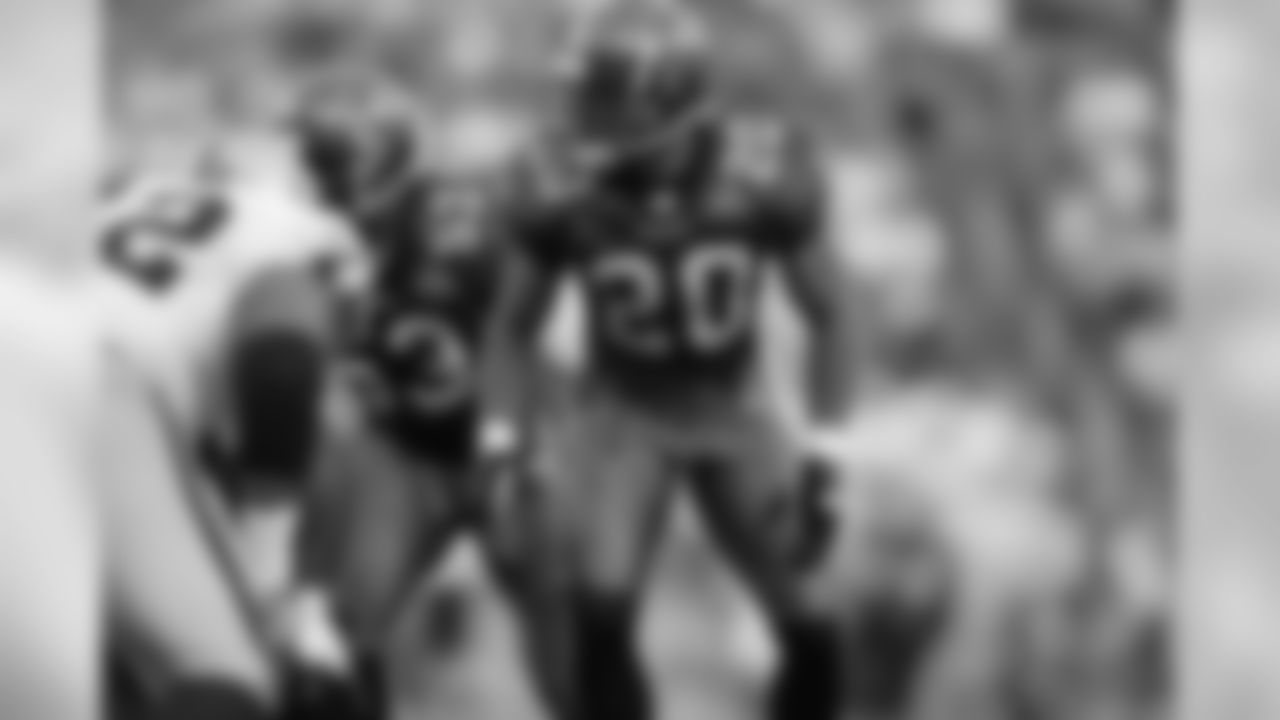

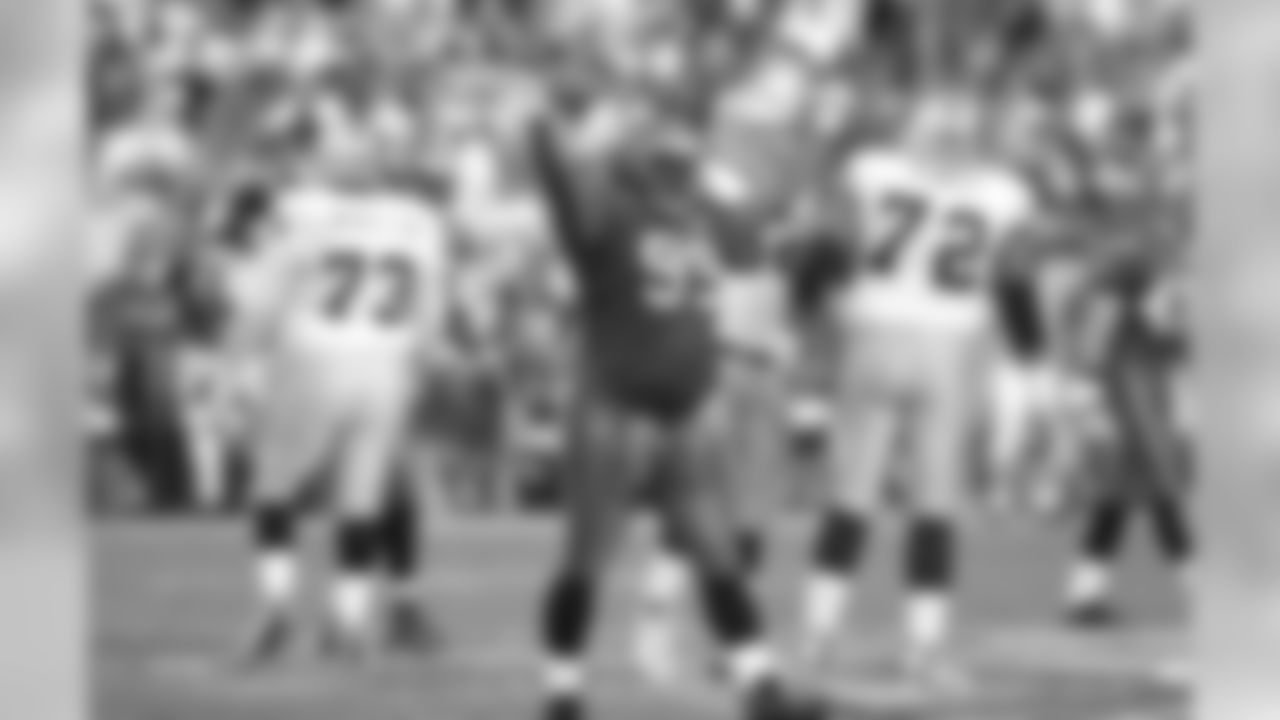

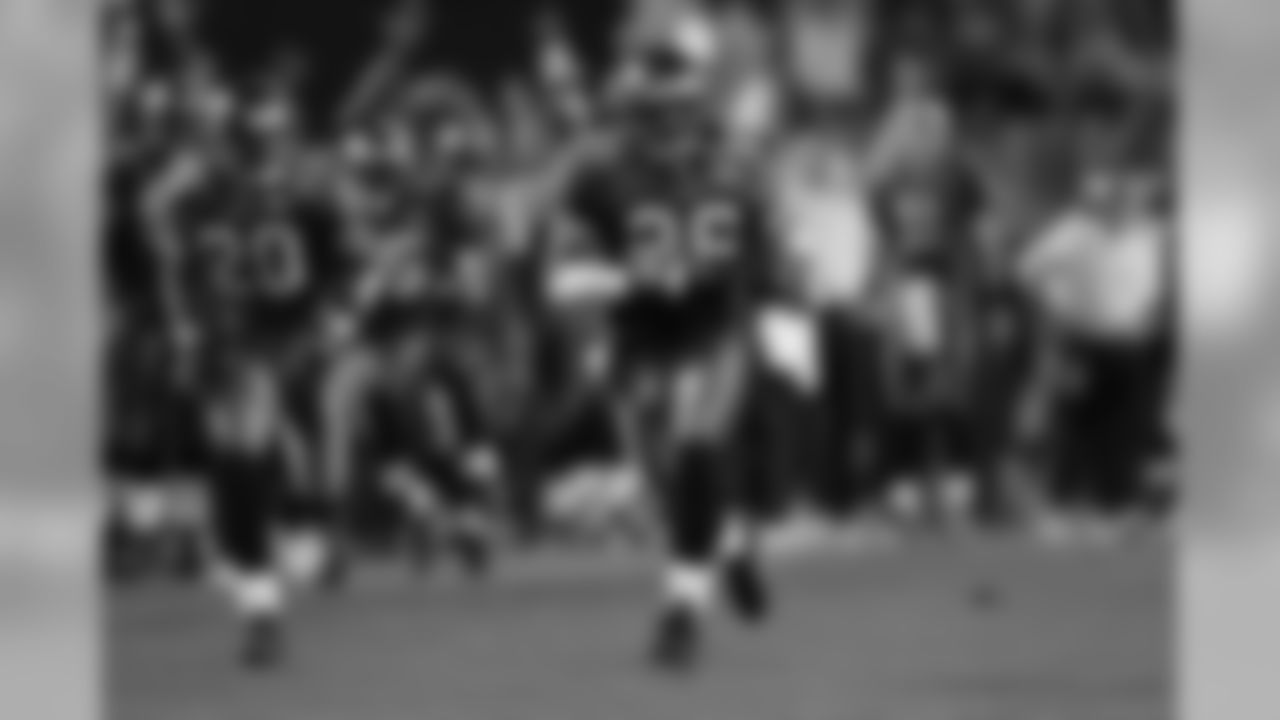

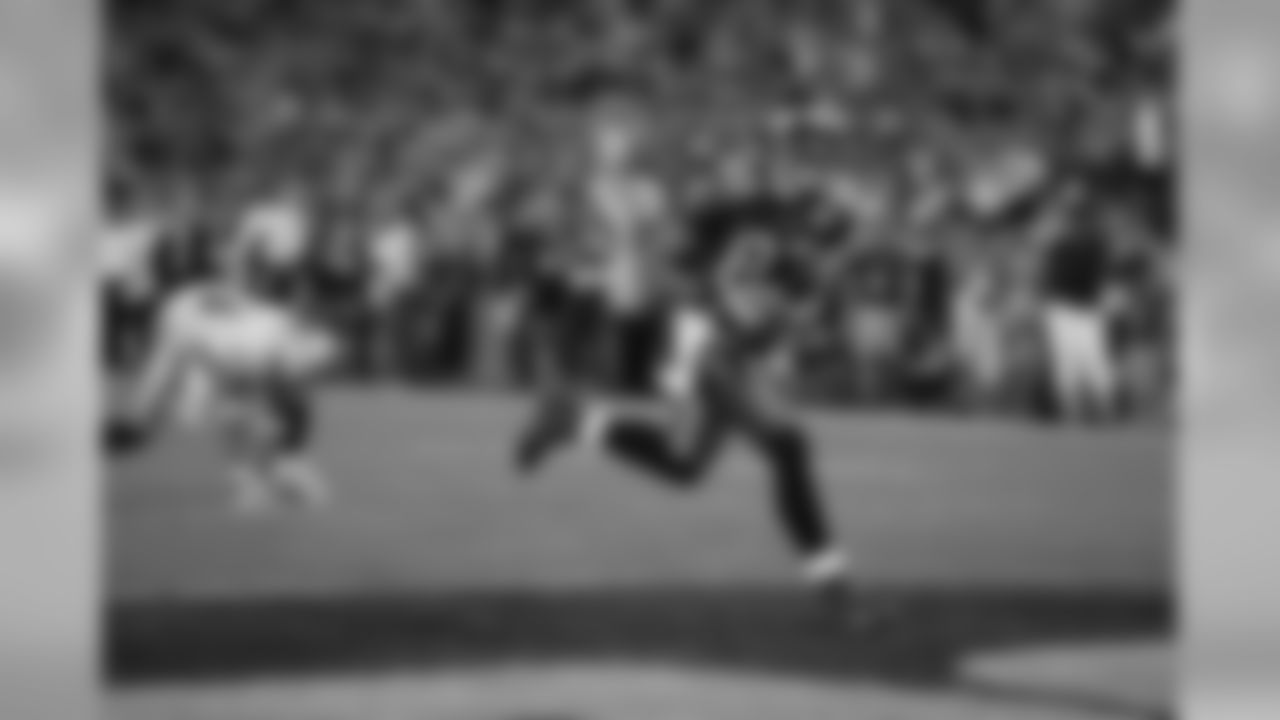
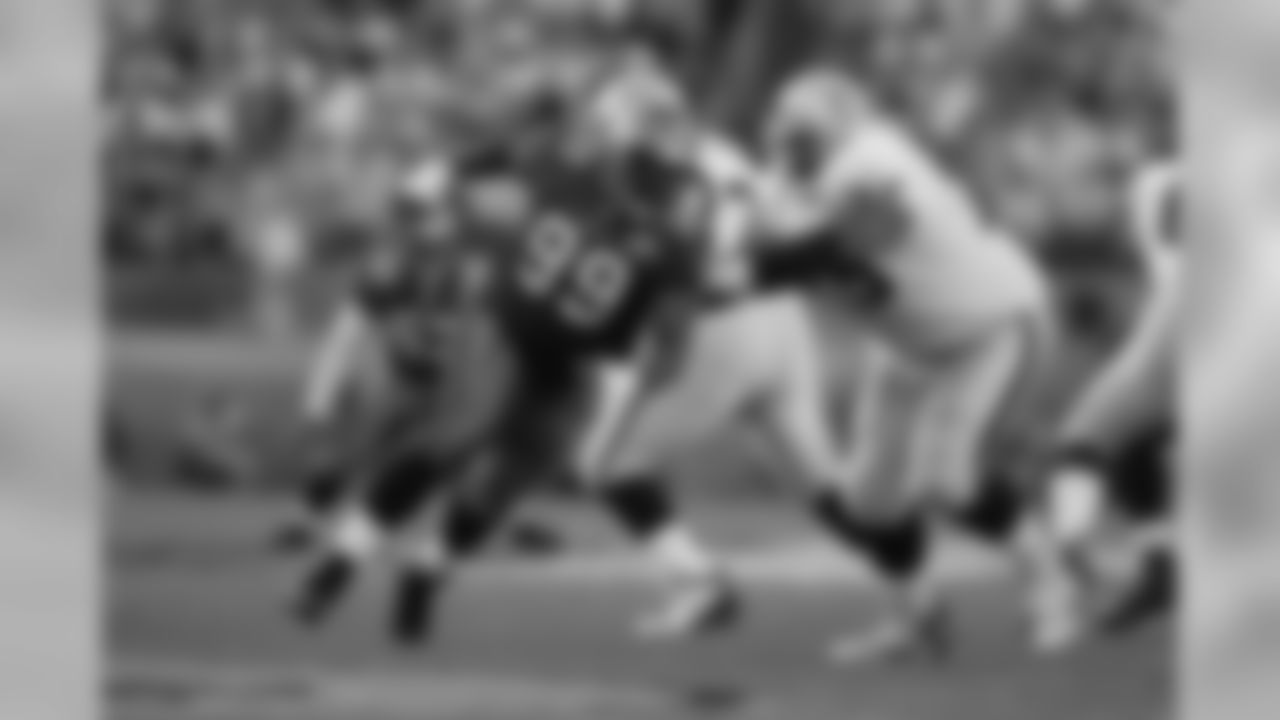
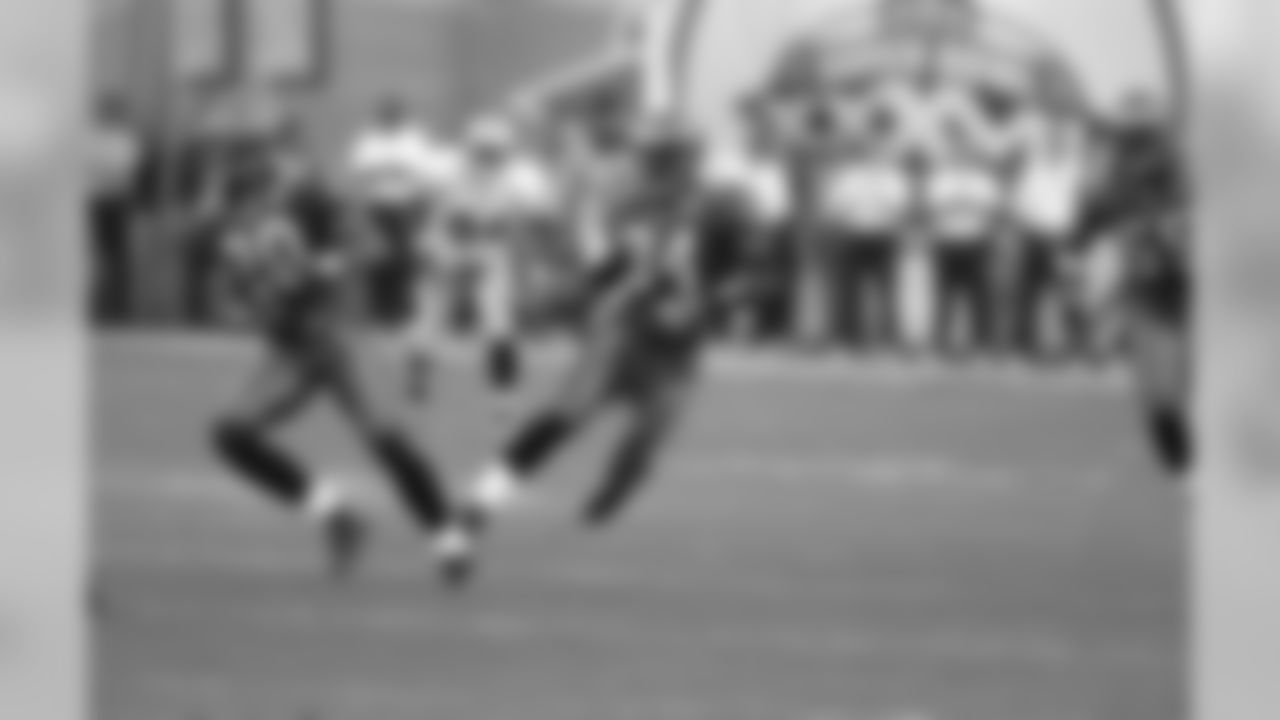

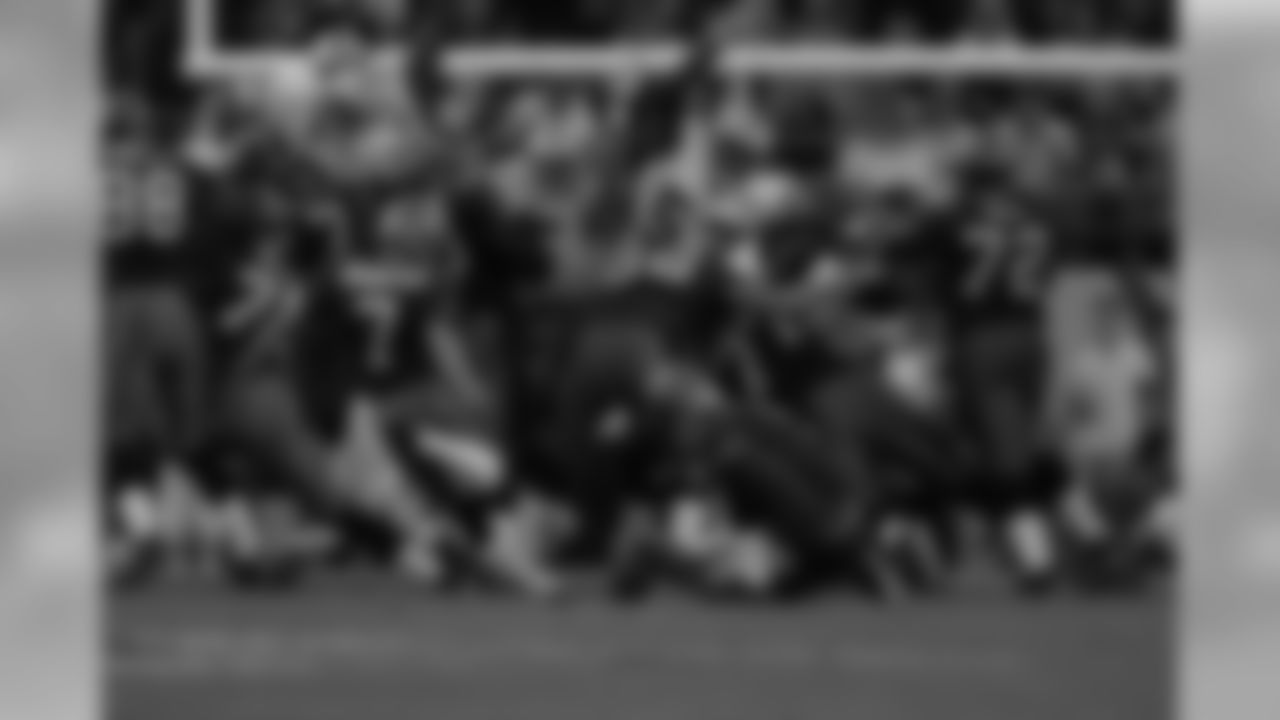













The first time the Tampa Bay Buccaneers and Oakland Raiders met, the Buccaneers were still in their infancy and the Raiders were two months away from lifting the Lombardi Trophy. The result was predictable, to say the least: John Madden's powerhouse crew rolled for nearly 500 yards in a 49-16 drubbing of the overmatched expansion team at Oakland-Alameda County Stadium on Nov. 28, 1976.
If revenge is, indeed, a dish best served cold, then the Buccaneers stored their entree in the freezer for 26 years, one month and 29 days later before finally pulling the lid off the cloche on Jan. 26, 2003.
VIEW: WEEK 8 POWER RANKINGS
Tampa Bay fans recognize that date, of course. The NFL's 27th franchise, which took the field for the first time in '76 stocked almost exclusively with rookies and veteran castoffs, reached the league's pinnacle at the end of the 2002 season with a 48-21 win over the Oakland Raiders in Super Bowl XXXVII. By that point, Madden was best known for his onomatopoeic work in the broadcast booth. By the time the Buccaneers would get a different sort of revenge with their first win in Oakland, Madden was best known as the namesake of a video game obsession.
But back to the beginning. Tampa Bay and Seattle comprised the expansion wave of 1976, and by design the Buccaneers would spend their first season in the AFC West while the Seahawks would be part of the NFC West. The next year, Seattle would take the Bucs' place in the AFC West while Tampa Bay would move to the NFC Central. In essence, the Buccaneers were just in the "AFC" in their first year, because their schedule consisted of exactly one game against every other team in the conference plus an all-expansion matchup with the Seahawks.
The trip to Oakland was relatively late in the year for the Buccaneers, which meant their undermanned roster was also badly thinned by injuries. Lee Roy Selmon, Mike Washington and left tackle Dave Reavis were among those on injured reserve by Week 14. The Raiders, meanwhile, fielded a star-studded cast that included Ken Stabler, Fred Biletnikoff, Cliff Branch, Gene Upshaw, Art Shell, John Matuszak, Ted Hendricks and Jack Tatum. Yeah, it didn't go well. Future Gators Head Coach Steve Spurrier got the start for Tampa Bay and absorbed five sacks, while Branch caught five passes for 110 yards and a touchdown in the rout.
Five years later, the Buccaneers took a far more competent crew back to Oakland and even caught the Raiders in a small downturn, as 1981 would be the only season in a span of two decades that the Raiders did not finish with a winning record (they were a dismal 7-9). The Bucs were on their way to their second playoff appearance in three seasons, and with a far better defense they held the Raiders to 31 fewer points this time. Unfortunately, Tampa Bay's offense exactly duplicated it's 1976 tally, leading to a narrow, 18-16 loss. The Bucs, in fact, nearly pulled off an impressive rally; down 15-0 at halftime they grabbed the lead in the second half on two Doug Williams touchdown passes – a 77-yarder to Kevin House and a 13-yarder to Jimmie Giles – and a Bill Capece field goal. Capece also missed the second of his two PATs and, after Oakland had reclaimed the lead with a Chris Bahr field goal, had a potential 31-yard game-winner blocked by Hendricks with eight seconds to play.
The third Bucs-Raiders game was also in California, but it was so long after the second one that Art Shell was no longer the stud left tackle but the head coach, and the game wasn't even in Oakland. In fact, the Raiders had moved to Los Angeles one season after the game described above and in 1993 were in their second-to-last year in L.A. before they would move back to their original home. Reggie Cobb scored two touchdowns for the Buccaneers and Craig Erickson threw for an efficient 295 yards, though he was sacked five times. Tampa Bay's run defense, led by free agent star Hardy Nickerson, was magnificent, allowing just 17 yards on 23 carries, but the Bucs committed the game's only two turnovers and lost, 27-20.
Three years later, and 20 years after the two teams first met, the Raiders finally came to Tampa in 1996. Actually, they weren't completely unfamiliar with Tampa Stadium, having won Super Bowl XVIII there at the end of the 1984 season. But this was the Bucs' first home game in the series and they used that advantage to secure their first win, 20-17, in overtime. This was just the second win for the team under new Head Coach Tony Dungy; after a five-game losing streak to start the season, the Bucs beat Minnesota for Dungy's first win and then lost three more, all by very slim margins. This one was tight, too, even though the Buccaneers ran 49 times for 162 yards and Trent Dilfer completed 20 of 28 passes, two of them for touchdowns. In fact, rookie FB Mike Alstott, who finished with 121 yards from scrimmage, had to score on a two-yard pass in the fourth quarter to tie the game, and the Bucs had to get a little lucky when Raiders kicker Cole Ford missed a 28-yard field goal at the end of regulation. Tampa Bay won the overtime coin toss but it wasn't until after an exchange of punts that the home team drove 57 yards to set up Michael Husted's game-winning 23-yard field goal.
The Raiders were back in Oakland in time for the Bucs' next visit, in 1999, a game that proved to be one of the strangest aberrations in Tampa Bay's franchise history. After starting that season 3-4, the Buccaneers caught fire and won nine of their next 10, including a divisional playoff victory over Washington, to reach the NFC Championship Game. The only loss in that span was in Oakland, to Jon Gruden's Raiders, by a stunning 45-0 margin. It was the classic snowball game, with Tim Brown (a future Buccaneer, if briefly) catching a 20-yard touchdown pass from Rich Gannon four minutes, after which everything that could go wrong, did. The Raiders ran for 262 yards and four touchdowns, won the turnover battle 3-0, sacked Shaun King four times and held the Bucs to 1.8 yards per carry. The Bucs rebounded the very next week to beat Brett Favre a good Green Bay team, 29-10.
The next time the Bucs and Raiders would meet it would be at a neutral site, though it was a much shorter trip for the Oakland club. That would be the aforementioned Super Bowl XXXVII, played in San Diego's Qualcomm Stadium and thoroughly dominated by the Buccaneers' defense. The game was billed as the first ever Super Bowl meeting between the number-one ranked offense, led by Gannon, and the number-one ranked defense, led by Defensive Player of the Year Derrick Brooks. The Buccaneers set Super Bowl records by picking Gannon off five times and returning three of them for touchdowns, the last by Brooks in the fourth quarter to put the game away after a mild Oakland rally. Gruden, who had moved from Oakland to Tampa in a blockbuster trade in March, used his knowledge of the Raiders' offense to help his aggressive defense know exactly what was coming.
The NFL's new scheduling format, with rotating divisional matchups, kicked in in 2002 and that meant a 2004 game for the Bucs in Oakland and a rematch in Tampa in 2008. The Raiders won both. The 30-20 final of the '04 game looks relatively close, but Tampa Bay scored two meaningless fourth-quarter touchdowns in that one after falling behind, 30-6. One of those two TDs was by Tim Brown during his one season in Tampa. Brad Johnson threw for 309 yards and those two scores but was also victimized by a pick-six recorded by future Buccaneer CB Phillip Buchanon. The '08 game, on the season's final weekend, was a 31-24 Raider win that ended a stunning four-game losing streak that took the Bucs from 9-3 to out of the playoff field. Cadillac Williams ran for 78 yards and two touchdowns, the latter of which gave the Buccaneers a 24-14 fourth-quarter lead. However, a long pass-interference call on Will Allen set up a Raider touchdown moments later, and Michael Bush ripped off a 67-yard touchdown run just four minutes later. Bucs QB Jeff Garcia was intercepted on the very next play, and then sacked on the final snap after the Bucs had reached Oakland's 45 with 16 seconds to play.
MORE: ONE BUC MAILBAG
The schedule rotation took the Buccaneers back to Oakland in 2012, and that proved to be a very happy homecoming for Stockton native Doug Martin, Tampa Bay's rookie sensation. Martin led the Buccaneers to a 42-32 victory with the greatest performance ever by a Buccaneer running back, blasting for 251 yards and four touchdowns on 25 carries. That enormous day included touchdown runs of 45, 67 and 70 yards, as he seemed to be shot out into the open field on every handoff. After the Bucs opened up a 28-10 lead, the Raiders did manage to make it into more of a game as Carson Palmer threw a whopping 61 passes, completing 39 of them for 414 yards and four touchdowns. Ahmad Black, Leonard Johnson and E.J. Biggers all intercepted Palmer, however, to keep the comeback from being complete.
Bucs-Raiders Regular-Season Game-by-Game Record:
1976: L, 49-16 in Oakland
1981: L, 18-16 in Oakland
1993: L, 27-20 in Los Angeles
1996: W, 20-17 (OT) in Tampa
1999: L, 45-0 in Oakland
2004: L, 30-20 in Oakland
2008: L, 31-24 in Tampa
2012: W, 42-32 in OaklandBucs-Raiders Postseason Game-by-Game Record:
2002: W, 48-12 in San Diego* (Super Bowl XXXVII)Series Notes (regular-season only):
- Overall Series: Raiders lead, 6-2
- Bucs' Home Record: 1-1
- Bucs' Road Record: 1-5
- Current Streak: Win 1 (2012)
- Buccaneers' Longest Winning Streak: 1 (1996 and 2012)
- Raiders' Longest Winning Streak: 3 (1976-93, 1999-2008)
- Regular Season Point Total: Buccaneers 158, Broncos 249
- Most Points in a Game, Tampa Bay: Buccaneers 42-32 (2012)
- Most Points in a Game, Oakland: Raiders 49-16 (1976)
- Most Points, both teams: 74, Buccaneers 42-32 (2012)
- Fewest Points in a Game, Buccaneers: Raiders 45-0 (1999)
- Fewest Points in a Game, Raiders: Buccaneers 20-17 (1996)
- Fewest Points in a Game, both teams: 34, Raiders 18-16 (1981)






















